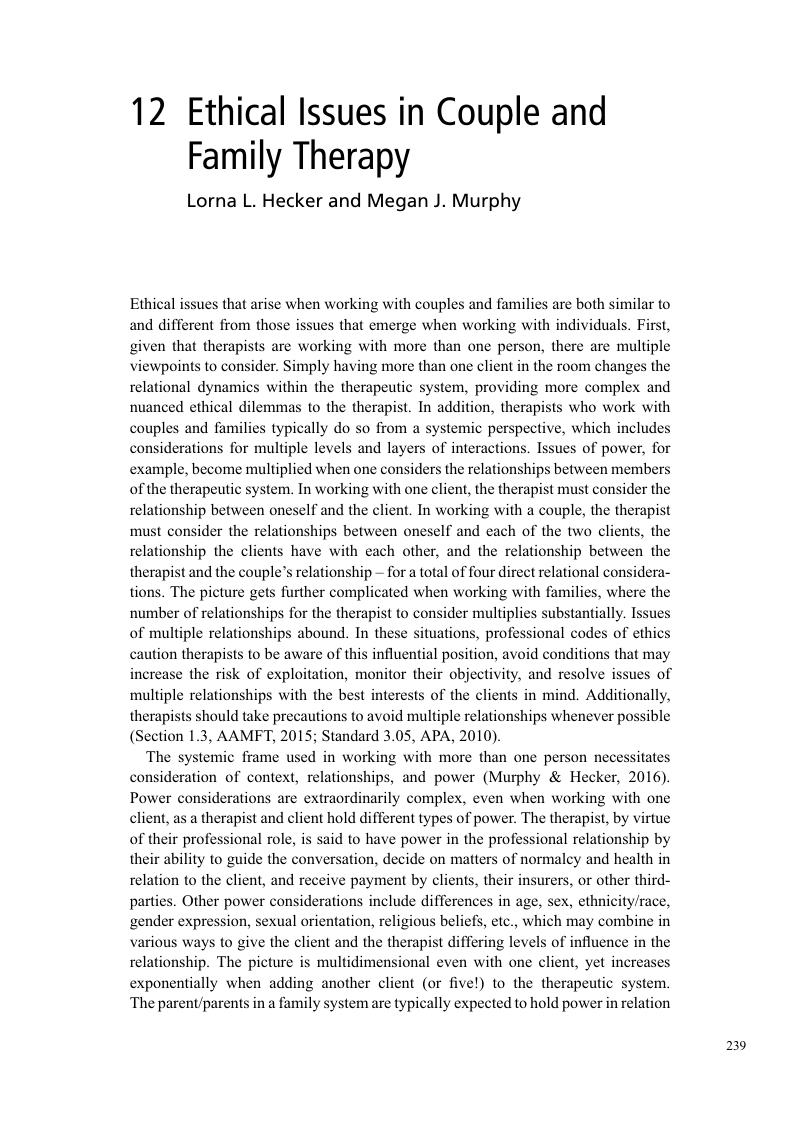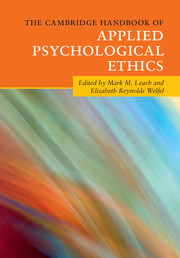Book contents
- The Cambridge Handbook of Applied Psychological Ethics
- The Cambridge Handbook of Applied Psychological Ethics
- Copyright page
- Dedication
- Contents
- Contributors
- Preface
- Acknowledgments
- Section I Ethical Issues in Specific Settings and Challenging Populations
- 1 Ethical Considerations for Working with Military Service Personnel
- 2 Ethical Issues in Addressing Mental Health Concerns in Schools
- 3 Ethical Issues in Providing Mental Health Services to College Students
- 4 Ethical Issues When Working in Hospital Settings
- 5 Ethics in a Rural Context
- 6 Ethics and Private Practice
- 7 Ethics on the Edge: Working with Clients Who Are Persistently Suicidal
- 8 Applied Addiction Ethics
- 9 Ethics and Clients Who Have Experienced Sexual Trauma and Intimate Partner Violence
- 10 Ethical Issues in the Treatment of Eating Disorders
- 11 Ethical Considerations in Group Psychotherapy
- 12 Ethical Issues in Couple and Family Therapy
- Section II Ethical Issues in Working with Diverse Populations
- Section III Legal, Research, and Organizational Issues
- Section IV Emerging Ethical Issues in Professional Practice and Next Steps
- Index
- References
12 - Ethical Issues in Couple and Family Therapy
from Section I - Ethical Issues in Specific Settings and Challenging Populations
Published online by Cambridge University Press: 14 February 2018
- The Cambridge Handbook of Applied Psychological Ethics
- The Cambridge Handbook of Applied Psychological Ethics
- Copyright page
- Dedication
- Contents
- Contributors
- Preface
- Acknowledgments
- Section I Ethical Issues in Specific Settings and Challenging Populations
- 1 Ethical Considerations for Working with Military Service Personnel
- 2 Ethical Issues in Addressing Mental Health Concerns in Schools
- 3 Ethical Issues in Providing Mental Health Services to College Students
- 4 Ethical Issues When Working in Hospital Settings
- 5 Ethics in a Rural Context
- 6 Ethics and Private Practice
- 7 Ethics on the Edge: Working with Clients Who Are Persistently Suicidal
- 8 Applied Addiction Ethics
- 9 Ethics and Clients Who Have Experienced Sexual Trauma and Intimate Partner Violence
- 10 Ethical Issues in the Treatment of Eating Disorders
- 11 Ethical Considerations in Group Psychotherapy
- 12 Ethical Issues in Couple and Family Therapy
- Section II Ethical Issues in Working with Diverse Populations
- Section III Legal, Research, and Organizational Issues
- Section IV Emerging Ethical Issues in Professional Practice and Next Steps
- Index
- References
Summary

- Type
- Chapter
- Information
- The Cambridge Handbook of Applied Psychological Ethics , pp. 239 - 262Publisher: Cambridge University PressPrint publication year: 2018
References
- 2
- Cited by



